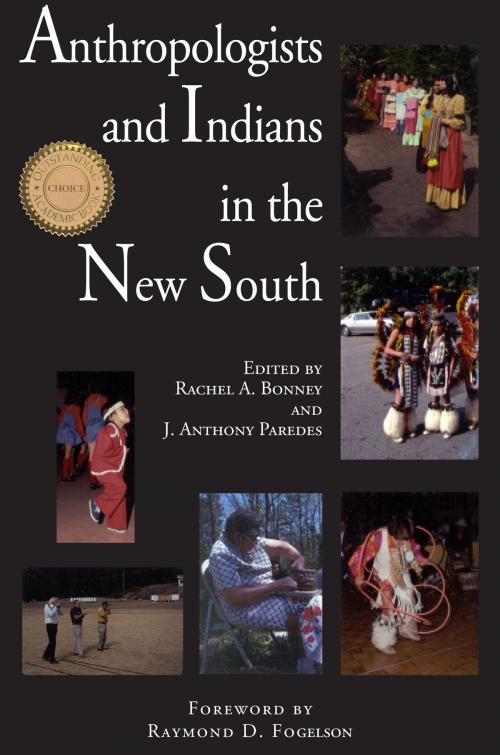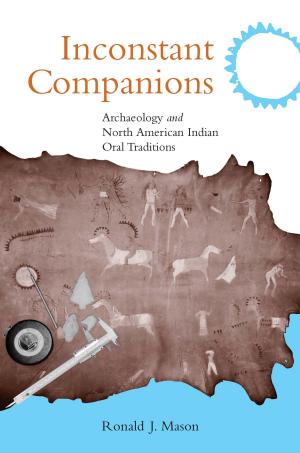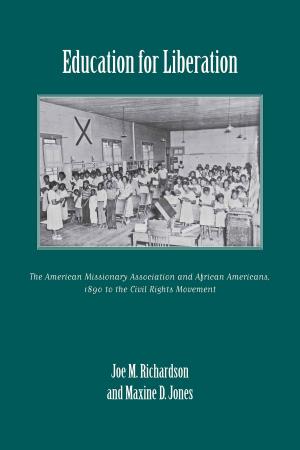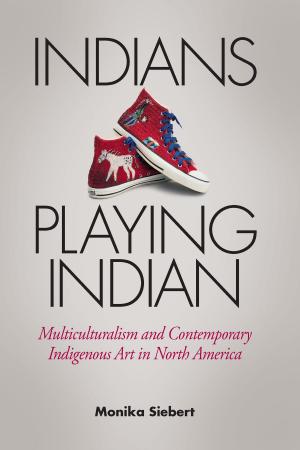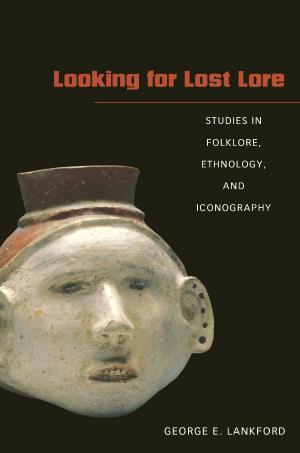Anthropologists and Indians in the New South
Nonfiction, Social & Cultural Studies, Social Science, Cultural Studies, Native American Studies, Anthropology| Author: | Patricia Barker Lerch, Lisa J. Lefler, Raymond D. Fogelson, Janet E. Levy, Max E. White, Susan S. Stans, George Roth, Allan Burns, Penny Jessel, Emanuel J. Drechsel, Michael H. Logan, Stephen D. Ousley, Kendall Blanchard, Clara Sue Kidwell, Billy Cypress, Larry Haikey, Karen I. Blu | ISBN: | 9780817313234 |
| Publisher: | University of Alabama Press | Publication: | September 15, 2009 |
| Imprint: | University Alabama Press | Language: | English |
| Author: | Patricia Barker Lerch, Lisa J. Lefler, Raymond D. Fogelson, Janet E. Levy, Max E. White, Susan S. Stans, George Roth, Allan Burns, Penny Jessel, Emanuel J. Drechsel, Michael H. Logan, Stephen D. Ousley, Kendall Blanchard, Clara Sue Kidwell, Billy Cypress, Larry Haikey, Karen I. Blu |
| ISBN: | 9780817313234 |
| Publisher: | University of Alabama Press |
| Publication: | September 15, 2009 |
| Imprint: | University Alabama Press |
| Language: | English |
Choice Outstanding Academic Title for 2002
An important collection of essays that looks at the changing relationships between anthropologists and Indians at the turn of the millennium.
Southern Indians have experienced much change in the last half of the 20th century. In rapid succession since World War II, they have passed through the testing field of land claims litigation begun in the 1950s, played upon or retreated from the civil rights movement of the 1960s, seen the proliferation of "wannabe" Indian groups in the 1970s, and created innovative tribal enterprises—such as high-stakes bingo and gambling casinos—in the 1980s. The Native American Graves Protection and Repatriation Act of 1990 stimulated a cultural renewal resulting in tribal museums and heritage programs and a rapprochement with their western kinsmen removed in "Old South" days.
Anthropology in the South has changed too, moving forward at the cutting edge of academic theory. This collection of essays reflects both that which has endured and that which has changed in the anthropological embrace of Indians from the New South. Beginning as an invited session at the 30th-anniversary meeting of the Southern Anthropological Society held in 1996, the collection includes papers by linguists, archaeologists, and physical anthropologists, as well as comments from Native Americans.
This broad scope of inquiry—ranging in subject from the Maya of Florida, presumed biology, and alcohol-related problems to pow-wow dancing, Mobilian linguistics, and the "lost Indian ancestor" myth—results in a volume valuable to students, professionals, and libraries. Anthropologists and Indians in the New South is a clear assessment of the growing mutual respect and strengthening bond between modern Native Americans and the researchers who explore their past.
Rachel A. Bonney is Associate Professor of Anthropology at the University of North Carolina at Charlotte. J. Anthony Paredes is Chief of Ethnography and Indian Affairs in the Southeast Regional Office of the National Park Service and editor of Indians of the Southeastern United States in the Late 20th Century. Raymond D. Fogelson is Professor of Anthropology at the University of Chicago and author of The Cherokees.
Additional reviews:
"Anthropologists and Indians in the New South reaches beyond the Southeast to touch on issues in all areas of Native American studies and on contemporary methodological and ethical issues in anthropology and other fields such as history. It makes an excellent resource for research as well as teaching. . . . invaluable to any course about Native American culture, history, and contemporary issues."—American Indian Culture and Research Journal
"A nice contribution to the Southeastern anthropological literature for several reasons. First, it highlights the increasingly positive rapprochement between anthropologists and Indians rather than dwelling on the negative, as is so often done. Levy's article on the positive outcomes of NAGPRA is an example of this refreshing perspective. Second, it focuses on the changing relations between these two groups, reminding us that all cultures change; anthropology is no exception. Finally, all of the articles are tied together by the common theme of how anthropology has changed as the relationships between anthropologists and Indians change. Maintaining a strong theme throughout an edited volume is no easy task, especially when there are so many authors. Bonney and Paredes have done a commendable job in keeping this theme alive in each of the chapters and in the introductions to each section. Regardless of one's position on applied anthropology, readers will find the case studies presented here to informatively and succinctly characterize the changing nature of anthropologist-Indian relations in the Southeast today."—Southeastern...
Choice Outstanding Academic Title for 2002
An important collection of essays that looks at the changing relationships between anthropologists and Indians at the turn of the millennium.
Southern Indians have experienced much change in the last half of the 20th century. In rapid succession since World War II, they have passed through the testing field of land claims litigation begun in the 1950s, played upon or retreated from the civil rights movement of the 1960s, seen the proliferation of "wannabe" Indian groups in the 1970s, and created innovative tribal enterprises—such as high-stakes bingo and gambling casinos—in the 1980s. The Native American Graves Protection and Repatriation Act of 1990 stimulated a cultural renewal resulting in tribal museums and heritage programs and a rapprochement with their western kinsmen removed in "Old South" days.
Anthropology in the South has changed too, moving forward at the cutting edge of academic theory. This collection of essays reflects both that which has endured and that which has changed in the anthropological embrace of Indians from the New South. Beginning as an invited session at the 30th-anniversary meeting of the Southern Anthropological Society held in 1996, the collection includes papers by linguists, archaeologists, and physical anthropologists, as well as comments from Native Americans.
This broad scope of inquiry—ranging in subject from the Maya of Florida, presumed biology, and alcohol-related problems to pow-wow dancing, Mobilian linguistics, and the "lost Indian ancestor" myth—results in a volume valuable to students, professionals, and libraries. Anthropologists and Indians in the New South is a clear assessment of the growing mutual respect and strengthening bond between modern Native Americans and the researchers who explore their past.
Rachel A. Bonney is Associate Professor of Anthropology at the University of North Carolina at Charlotte. J. Anthony Paredes is Chief of Ethnography and Indian Affairs in the Southeast Regional Office of the National Park Service and editor of Indians of the Southeastern United States in the Late 20th Century. Raymond D. Fogelson is Professor of Anthropology at the University of Chicago and author of The Cherokees.
Additional reviews:
"Anthropologists and Indians in the New South reaches beyond the Southeast to touch on issues in all areas of Native American studies and on contemporary methodological and ethical issues in anthropology and other fields such as history. It makes an excellent resource for research as well as teaching. . . . invaluable to any course about Native American culture, history, and contemporary issues."—American Indian Culture and Research Journal
"A nice contribution to the Southeastern anthropological literature for several reasons. First, it highlights the increasingly positive rapprochement between anthropologists and Indians rather than dwelling on the negative, as is so often done. Levy's article on the positive outcomes of NAGPRA is an example of this refreshing perspective. Second, it focuses on the changing relations between these two groups, reminding us that all cultures change; anthropology is no exception. Finally, all of the articles are tied together by the common theme of how anthropology has changed as the relationships between anthropologists and Indians change. Maintaining a strong theme throughout an edited volume is no easy task, especially when there are so many authors. Bonney and Paredes have done a commendable job in keeping this theme alive in each of the chapters and in the introductions to each section. Regardless of one's position on applied anthropology, readers will find the case studies presented here to informatively and succinctly characterize the changing nature of anthropologist-Indian relations in the Southeast today."—Southeastern...
